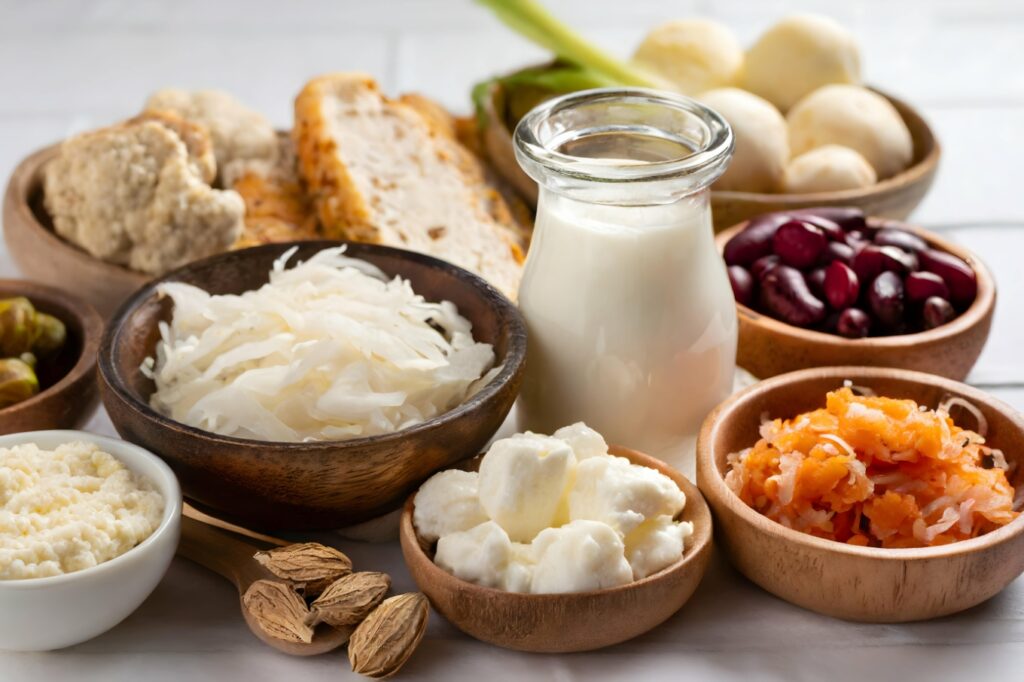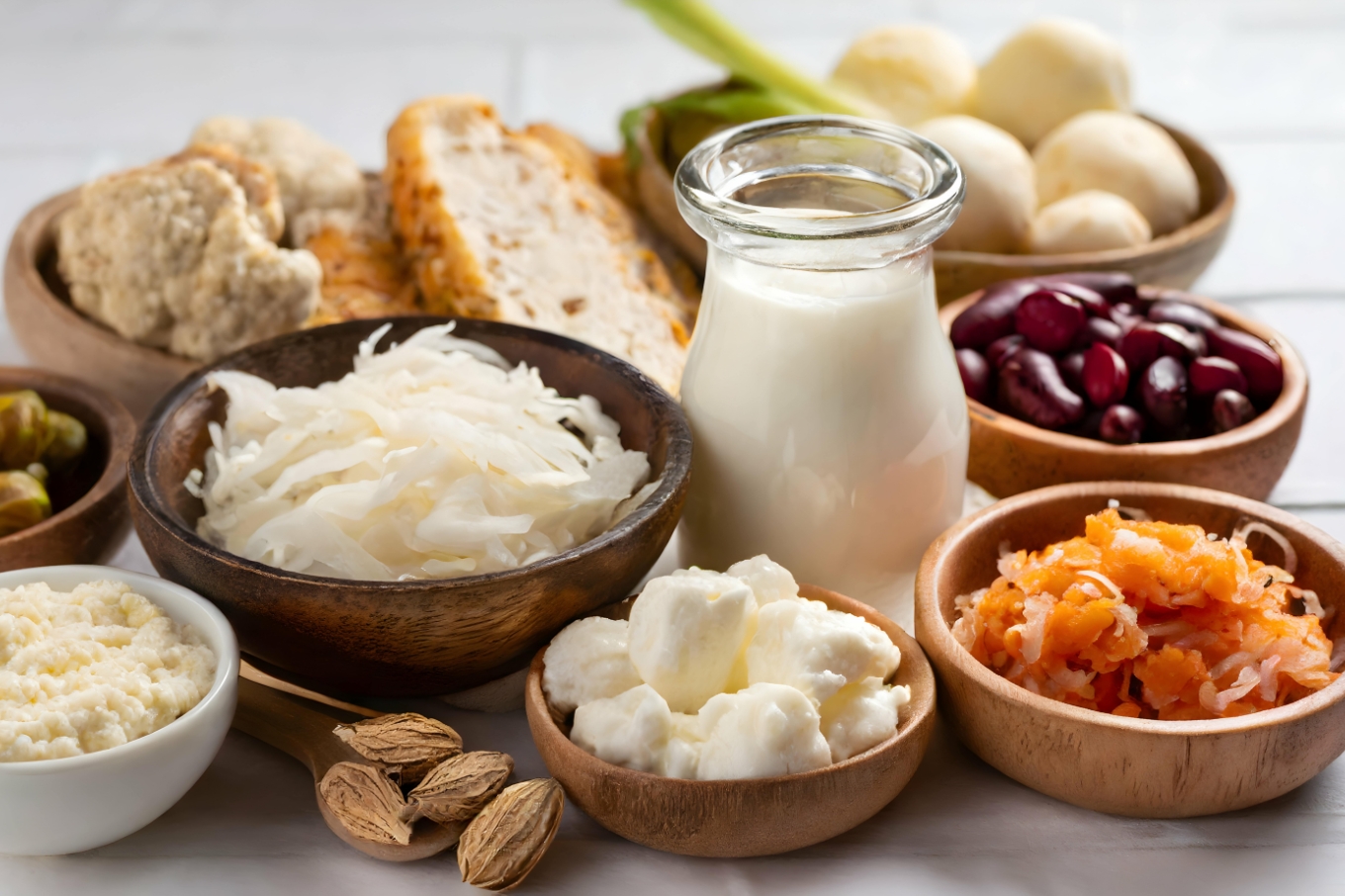Are fermented foods a performance booster?
Words: Zoe Wilson
Fads come and go, but fermented foods have been around for centuries. And, whilst research has begun into their positive impact on health, the question remains as to whether they can help athletes perform better. Let’s investigate.
What is fermentation?
Fermentation is an ancient technique for preserving food where microorganisms (like yeast or bacteria) convert carbohydrates into alcohol or acids. It is this alcohol or acid that preserve the food and give fermented foods their distinctly tart flavour. The fermentation process also promotes the growth of beneficial bacteria (probiotics), which have been lauded for their health benefits.
Most whole foods can be fermented. Think vegetables, fruits, cereals, dairy, meat, fish, eggs, legumes, nuts and seeds. Some popular fermented foods that are easily found in the local supermarket include:
- Yoghurt
- Sourdough
- Kombucha
- Sauerkraut
- Miso
- Cheese
- Kefir
- Kimchi
- Tempeh
- Wine, beer and cider
Are fermented foods healthier?
Research into fermented foods and their potential health benefits is relatively new, considering fermented foods have been eaten for generations. Currently there is evidence that regularly eating fermented foods can reduce the risk of diabetes and heart disease and improve the digestive and immune systems. These benefits are likely due to their antioxidant, anti-microbial, anti-fungal and anti-inflammatory properties. Interestingly, the fermentation process can also change the availability of nutrients in a food to make it more nutritious. For example, increase the availability of vitamin B12 in vegetables (excellent news for vegetarians and vegans).
The biggest benefit of fermented foods, however, seems to come from their probiotics. Probiotics are “good” bacteria that help to bolster the gut microbiome, creating a healthier mix of microbes and strengthening the walls of the intestine. Fermented foods with live microbes such as yoghurt, kefir, kimchi and sauerkraut are the most effective when it comes to improving the gut microbiome.

Can fermented foods improve performance?
Athletes often have a lowered immune system due to inflammation and fatigue caused by training. For athletes in this situation, it is likely the probiotics associated with fermented foods can help to support the immune system, leading to less illness, less days off the bike and therefore more consistent training.
However, research in this area is only just emerging. In fact, a systematic review published in 2007 in Current Sports Medicine Reports found no studies looking at the impact of fermented foods or probiotics in the athletic population. A review conducted only 12 years later and published in Nutrition showed things are changing rapidly. This review included 20 original studies that had investigated the use of probiotics in sports. The authors of the review concluded that athletes may benefit from probiotics consumption. The authors found that consuming these via multi-strain sachets or fermented foods show better results in terms of minimising upper respiratory and gastro-intestinal symptoms. They also noted a possible role of specific probiotic species in recovery but prefaced all these results by commenting on the need for more conclusive research.
The International Society of Sports Nutrition also weighed in on the topic of probiotics in 2019 in a position stand statement. Whilst not specifically related to fermented foods, the position stand stated probiotic supplementation has been shown to promote a healthy immune response. Specifically, in an athletic population, specific probiotic strains can reduce the number of episodes, severity and duration of upper respiratory tract infections.
Are there any downsides?
Fermented foods are considered safe for most people if prepared properly. However, due to the high probiotic content, there may be a temporary increase in gas and bloating, particularly after eating fermented foods also high in fibre, like kimchi or sauerkraut.
Is also important to note that some commercially produced fermented foods may contain high levels of added sugar, salt and fat, so be sure to read the label to make a healthy choice.
Lastly, if fermenting at home, follow the recipe closely. Incorrect temperatures, fermentation times or unsterile equipment can make it unsafe to eat.
The bottom line?
There is much more research to be done in athletes to really figure this topic out, so watch this space for more to come. But for now, if fermented foods are prepared safely, it’s worth eating them regularly. They can support gut health and the immune system, meaning more days on the bike and less in a sick bed. If you want to know more about how to include fermented foods, see an Accredited Sports Dietitian for professional advice.
Quick tips for including fermented foods daily
- Choose natural yoghurt as a snack or added to breakfast cereal.
- Swap regular soft drink for a kombucha.
- Include kimchi or sauerkraut as a side with your next main meal.
- Swap red meat or chicken for tempeh in your next stir fry.
- Opt for sourdough rather than regular bread in your daily sandwich.







